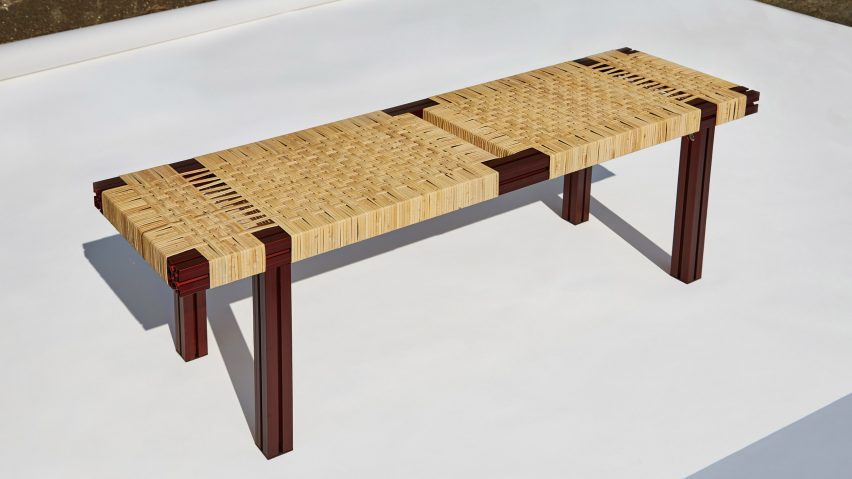
Wicker and aluminium furniture contrasts traditional and modern design
London-based designer Tino Seubert has combined anodised aluminium and hand-woven wicker to create a furniture collection, which is designed to evoke the contrast between old and new design.
Entitled Anodised Wicker, the collection sees Seubert merge the "clinical and precise" feel of aluminium with the "warm and organic" quality of wicker to create a bench and stool.
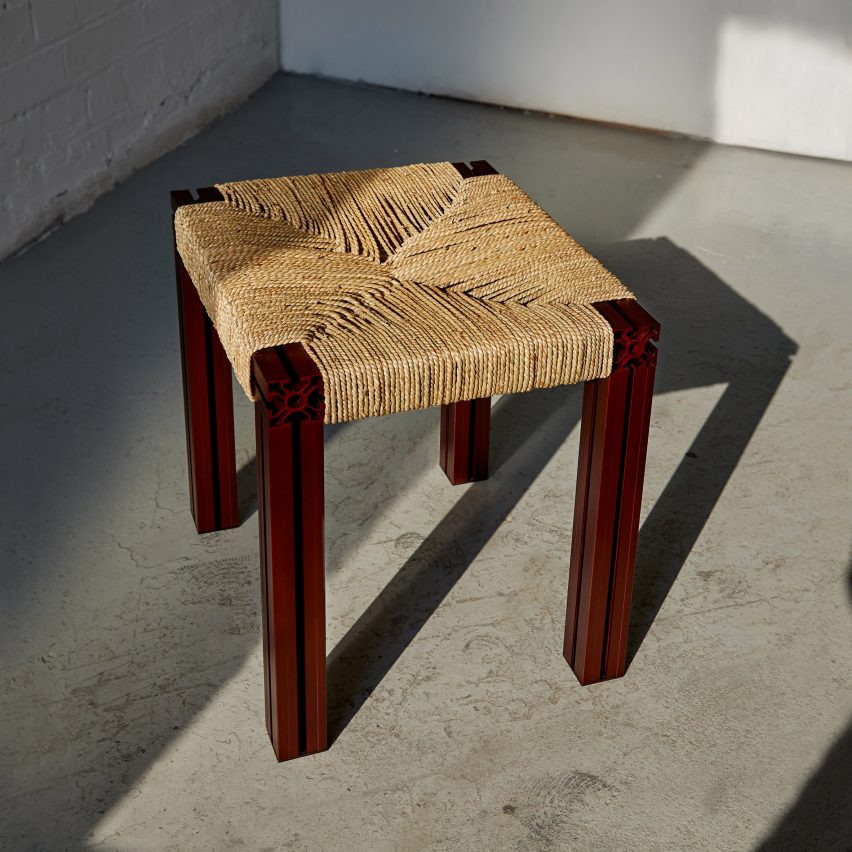
Commissioned by the Hepworth Gallery in Wakefield, West Yorkshire, for an exhibition titled Giles Round: The Director, Seubert was asked to explore the contrast of the old and the new – "the design classic and the contemporary newcomer".
For this, he turned to the woven works of 20th-century Danish designer Børge Mogensen and American artist Donald Judd's aluminium sculptures.
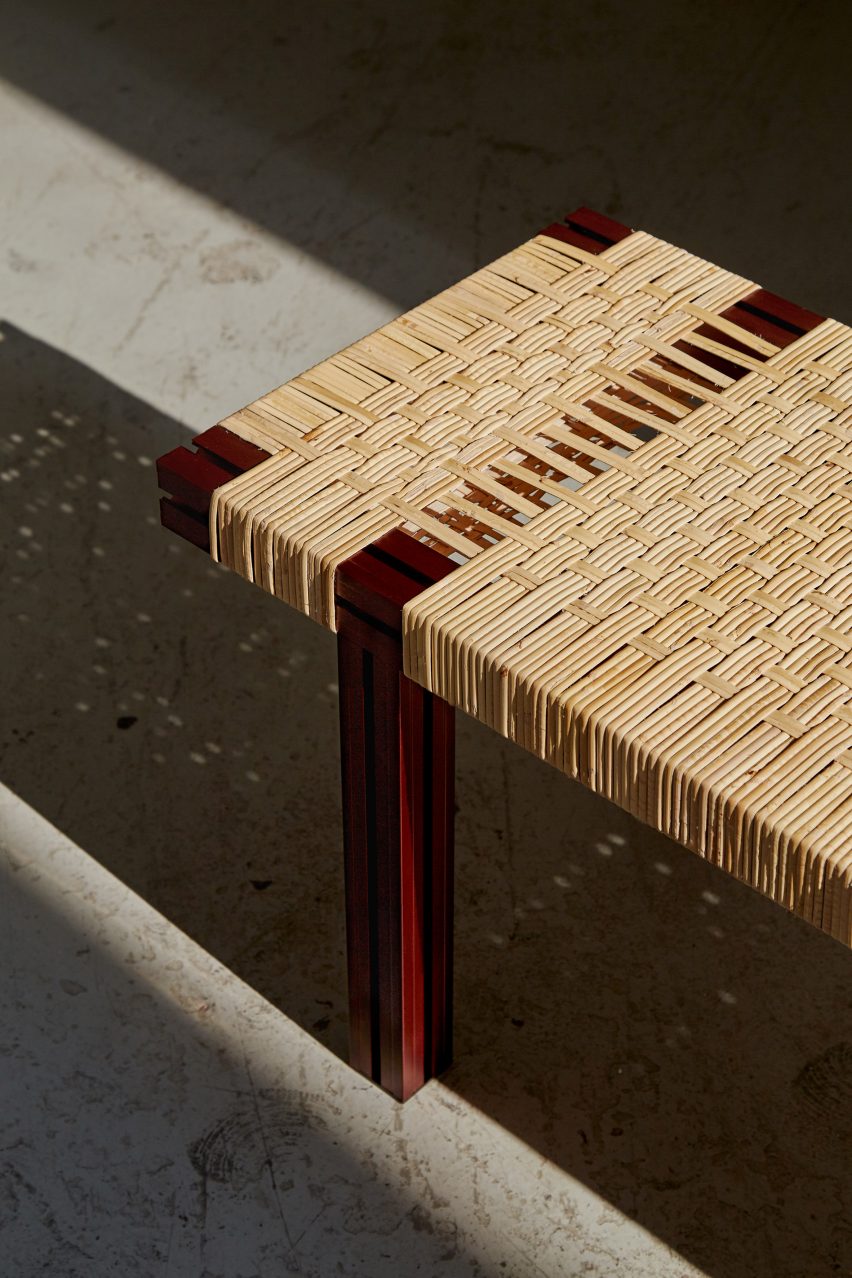
"Børge Mogensen created simple and highly functional furniture. He successfully implemented traditional handicrafts like cane and rush weaving usually found in ornate one-off-pieces into mass production for a modern living," Seubert told Dezeen.
"Meanwhile, Donald Judd picked up new, rough industrial materials and processes and turned them into art pieces, furniture and objects for the domestic environment," he explained.
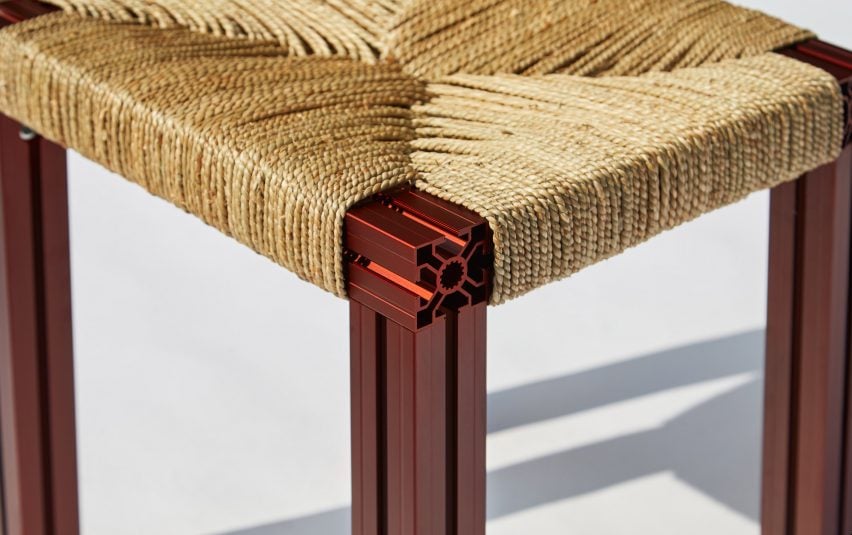
Both furniture items feature a dark red structure made of square aluminium rods with seats made of wicker and seagrass woven elements, intended to invoke the contrast between old and new design methods.
"I drew my inspiration from two distant fields – the clean industrial and the warm, organic hand-made dating back hundreds of years. They both are of extreme beauty to me and making them clash even amplifies this beauty," said Seubert.
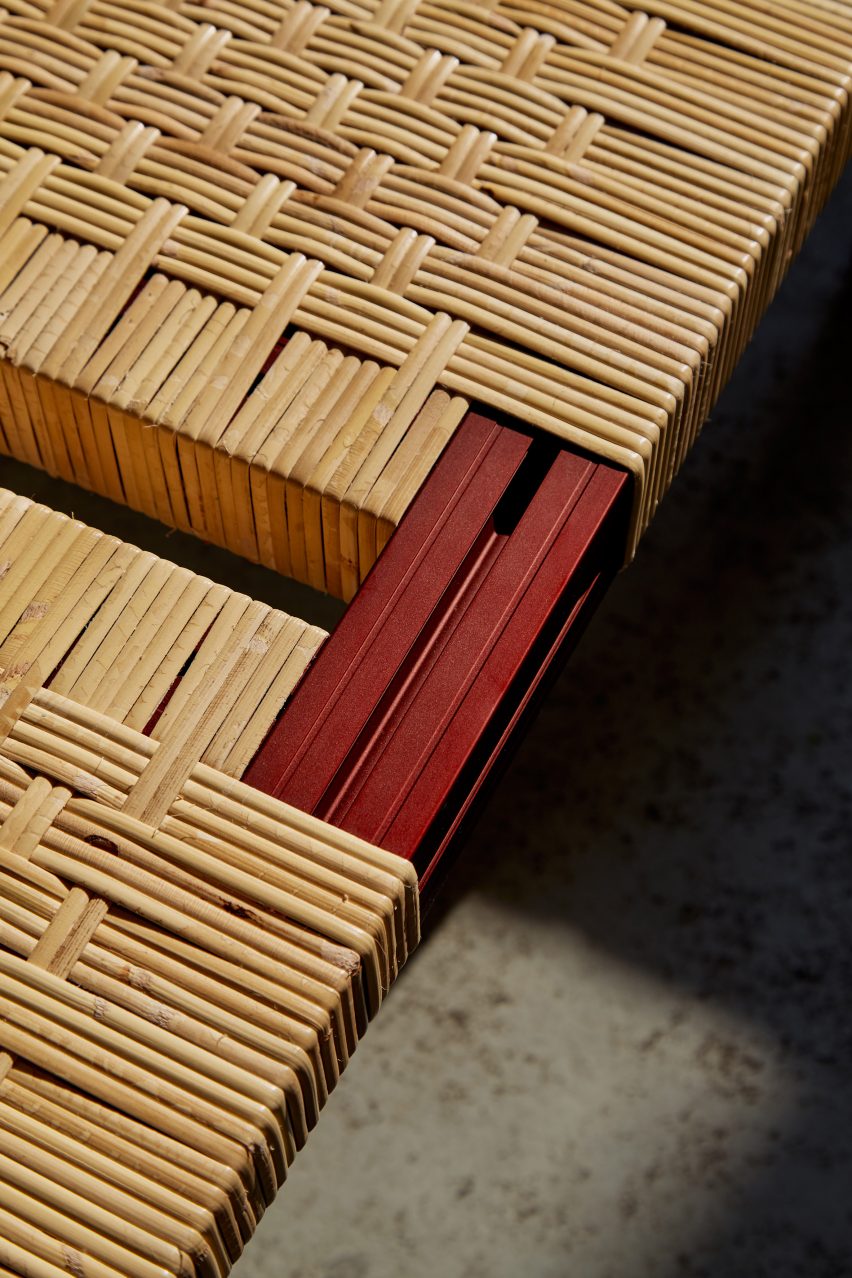
"The aluminium almost looks more precise next to the wicker, while the grass becomes more organic next to the aluminium," he continued.
"At the same time, the two materials merge so easily and it almost seems that one was designed for the other. This game of attraction and repulsion within an object excites me."
The Anodised Wicker furniture duo is on show at the Hepworth Gallery between 13 July and 13 January.
Elsewhere, a graduate created a collection of furniture for corridors, aimed at millennials who live in homes without communal living rooms, while Hamza Oza made a cloud-based system that helps families locate their loved ones during Hajj without the need for a smartphone or phone signal.